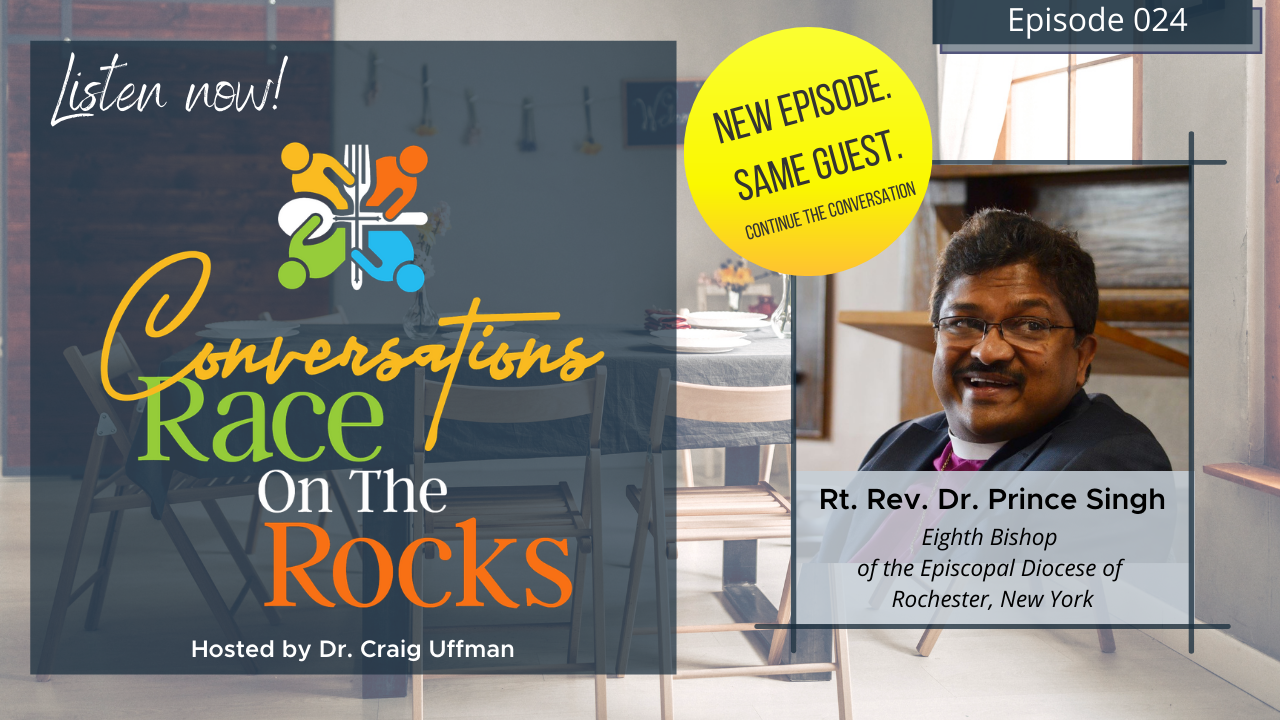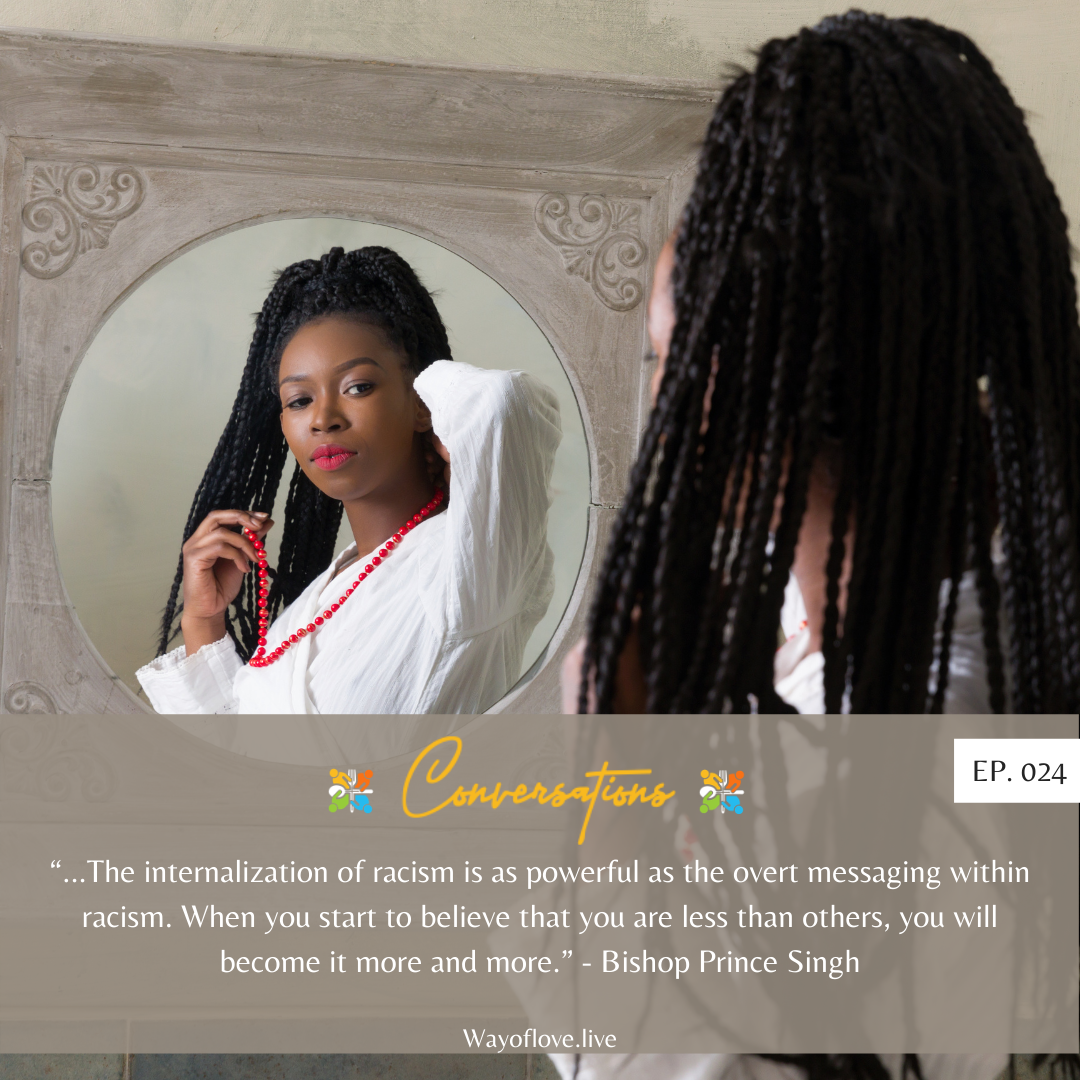“...Caste is not just about White and Black. It's about power.” - Bishop Prince Singh
Listen now on Spotify, Apple Podcasts, Google Podcasts, Stitcher and more!

In our last episode, Rt. Rev. Dr. Prince Singh joined me to share his experiences as a boy growing up in South India as well as his experiences as a young priest engaging the consequences of caste serving communities of Dalits (formerly known as Untouchables), the lowest ranking on the caste system. In this episode, we will be picking up where we left off, although this time, we will shift our focus over to Bishop Singh's experience as a priest and bishop here in the United States.
As a reminder, Rt. Rev. Dr. Prince Singh is the eighth and current bishop of the Episcopal Diocese of Rochester, NY. He was born in the larger state of Tamil Nadu in South India where he served many congregations as an Anglican priest before coming to the United States. While earning his PhD in New Jersey, he served multiple parishes and became such a powerful spiritual force that the people of Rochester called him to be their bishop. He has spent decades leading people to grapple with the challenges of racial reconciliation, and he is here to help us reflect on caste and to share his experiences of wrestling with racism here in the United States.
Bishop Prince shares what it was like to move here to the United States as a man of color, where he was now a minority. He reminds us of two of the main components of caste – purity and pollution – and how those components also play a role in racism here in the United States as White is often socially regarded as pure. Bishop Prince also acknowledges his privilege as a man and discusses how he goes about remaining aware of that privilege, and he offers some incredibly inspirational and moving grounds for hope for the future – such as humanity's move toward beloved community (a term that he explains and exemplifies) and how the COVID-19 pandemic has made some of us realize how divided we were even before the virus made us quarantine and be literally divided.
Speaking with Bishop Prince was such an uplifting experience as it always is, and I thank him for coming on the podcast to help us think about caste from the perspective of someone from India who is now living as a leader here in the United States. In our next two episodes, we will pivot from our historical descriptions of the realities of our racial tensions to do a deep dive into the habitual thoughts that cause and sustain said racial tensions. New Testament scholar Dr. Douglas Campbell of Duke will be joining us to help us think about the values that we tend to take for granted – values like love, justice, and freedom. Dr. Campbell believes that there are healthy and unhealthy ways to think about these values that can actually contribute to and perpetuate our racial tensions. Join us next time to learn more, and be sure to tell friends who might be interested in the podcast about us!

Show Notes
[4:26] – Bishop Prince reflects on what it was like moving to the United States where he was now a minority as a man of color.
[5:56] – Bishop Prince frames New Jersey as more progressive than Virginia but also more complex.
[7:43] – The South and the North, Bishop Prince argues, have the same iterations of racism that are just manifested differently.
[10:00] – Bishop Prince reminds us of how caste involves perceived purity and impurity.
[12:05] – Bishop Prince addresses his privilege as a man and how he works to become more aware of that privilege.
[14:57] – Dr. Uffman offers insight on the hierarchical worldview described by Bishop Prince.
[16:17] – We learn what it is like for Bishop Prince being a parent of boys of color in Rochester.
[18:54] – Bishop Prince reveals what benefits resulted from one of his sons finding a school that embraced how he learned.
[21:16] – Bishop Prince reflects on what he has observed and processed in Rochester regarding race.
[22:38] – We learn about the antidote to internalized racism.
[25:28] – The only hope to fight structural and internalized racism is to embrace community and break down the walls that separate us.
[26:50] – We discover what Bishop Prince means when he refers to beloved community.
[29:30] – We cannot have dreams without reparations, Bishop Prince argues.
[32:35] – It's not about being colorblind, Dr. Uffman interprets, but is rather about being color-sensitive.
[33:30] – Bishop Prince shares what pockets of the beloved community that he has observed.
Links and Resources
Episcopal Diocese of Rochester – About the Rt. Rev. Prince G. Singh
Isabel Wilkerson – Caste: The Origins of Our Discontents
Program - Dalit Solidarity Forum in the USA, inc.
Connect with Dr. Craig Uffman:

